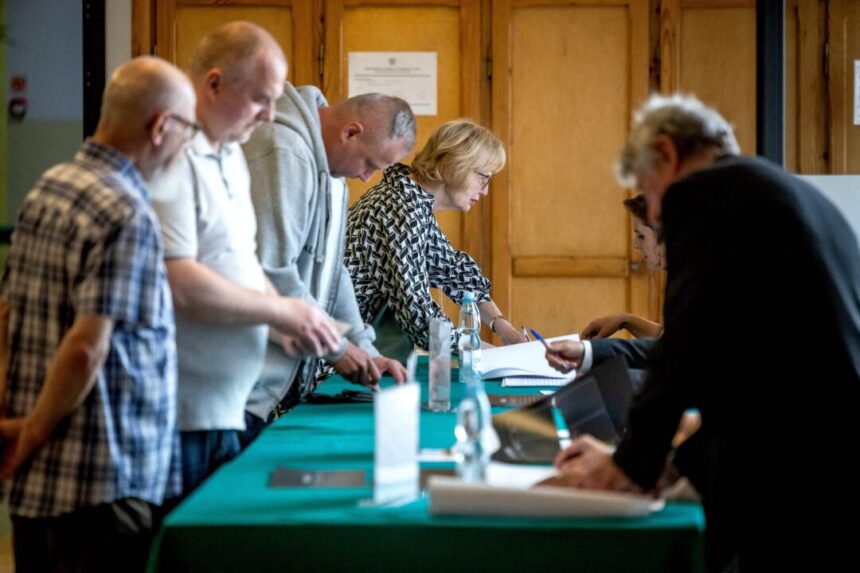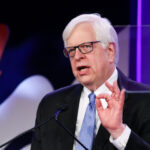The European parliamentary elections are underway as voters across the European Union head to the polls to select their representatives for the next five-year term. Polls have opened in 20 EU countries for the June 6–9 elections for a new European Parliament, the legislative branch of the 27-member bloc.
This week, millions of Europeans have been participating in one of the world’s largest democratic elections. Right-wing parties are seeking to increase their power amidst rising living costs, farmer discontent, and ongoing conflicts in Gaza and Ukraine, all of which are major concerns for voters.
Key issues at stake include the economy, jobs, poverty, social exclusion, public health, and the future of Europe. Official results are expected after all polling stations in the 27 EU nations close on Sunday.
Low Turnout in Spain
Spain is seeing a low turnout as 38 million eligible voters are choosing 61 members of the 720-seat European Parliament. The conservative opposition and the ruling Socialists are expected to secure the most seats.
Antonio García Escolar, a producer and screenwriter from Madrid, expressed concern over the lack of interest in the election, attributing it to misinformation. He emphasized the importance of seeking truthful information and voting against fascism.
Ana Cabanas, a lawyer from Madrid, highlighted economic and agricultural policies as her main reasons for voting, expressing her belief in Europe’s influence on Spanish legislation.
French Voters Concerned About Migration, Wars in Ukraine and Middle East
Migration, wars in Ukraine and the Middle East are top concerns for French voters. Right-wing leader Marine Le Pen’s party aims for a strong showing against President Emmanuel Macron’s party, with strong performances from Le Pen’s protege Jordan Bardella.
German Chancellor Scholz Faces First National Test Since Taking Office
The European Parliament election serves as the first nationwide test for political parties in Germany since Chancellor Olaf Scholz’s government assumed office. Pre-election surveys suggest the mainstream conservative opposition will maintain its position as Germany’s strongest force, while the governing coalition faces challenges.
Poland Votes With War in Ukraine and Migration Issues in Focus
Poland is voting amid concerns about national security due to the war in Ukraine and a migration crisis at its eastern border with Belarus. Prime Minister Donald Tusk emphasizes strengthening border controls to address these challenges.
Bulgarians Cast Ballots for New Parliament and in EU Elections
Bulgarians are participating in both a new parliamentary election and the European Union elections. This marks Bulgaria’s sixth parliamentary election in three years.
Concerns were raised about voter fatigue and widespread disillusionment with politicians failing to combat corruption and implement reforms, potentially leading to a low voter turnout and another fragmented parliament.
Preliminary results for the 240 seats in the National Assembly and 17 members in the European Parliament are expected on Monday.
The front-runners in the National Assembly elections were the GERB party led by three-time Prime Minister Boyko Borissov and the reformist coalition We Continue the Change–Democratic Bulgaria.
Exit polls in the Netherlands indicated that nationalist Geert Wilders’s party was poised to win seven of the 29 Dutch seats in the EU assembly. In Belgium, voters were projected to support the right-wing Flemish nationalist party Vlaams Belang in record numbers.
The European Union is currently conducting elections where citizens of member nations will elect representatives to the European Parliament for a five-year term. The European Parliament plays a crucial role in passing EU laws in collaboration with the Council of the European Union and the European Commission. Could you please rewrite this sentence?
Source link






